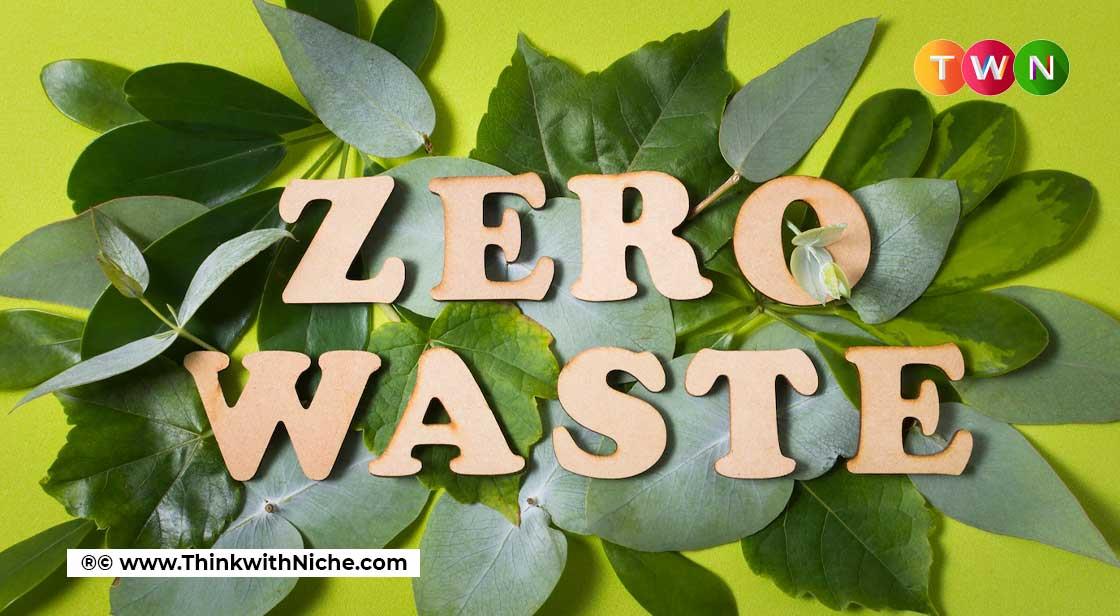Zero Wastage Can Lead Us To A Better Life

Blog Post
When you adopt a zero-waste lifestyle, you become more aware of how your consumption habits affect the environment. You're more conscious of what you eat and how you eat it. In brief, we pledge to reduce our consumption, reuse as much as possible, recycle as little as possible, and compost what we cannot. Let’s see how you can adopt a waste-free life. #ThinkWithNiche.
One of the most sustainable ways of life is to live a Zero Waste lifestyle. By avoiding resource extraction, lowering the number of materials transported to the landfill or incinerator, and minimizing pollution caused by the production, transportation, and disposal of materials, Zero Waste lifestyle choices have an impact on all environmental sectors. In fact, not only will you save money by adopting a Zero Trash lifestyle, but it will also help you minimize waste. Every action you can take to achieve Zero Waste is easy and cost-effective.
There are several methods to adopt Zero Waste behaviours. Take up the challenge of implementing some of the suggestions below.
1. Assess Your Current Wastage Level
It will be easier to establish a plan of action if you are honest with yourself about your waste habits. While the evaluation step might be intimidating, it can also be illuminating. As you analyze your present circumstances and begin making tiny improvements, it's critical to exercise self-compassion. Analyzing your present situation is important if you want to embark on a zero-waste project.
2. Don’t Throw; Give Away
When you glance around your house, you'll probably see a lot of useless and undesirable objects accumulating dust and messing around your house. Clearing and uncluttering your house is a fantastic way to start living a zero-waste lifestyle. To start anew, avoid tossing things away in huge numbers. Donate unneeded clothing and household goods instead, and give gifts to loved ones. Many individuals in your community need your surplus things, therefore giving them is the greatest option. Those materials can also be composted, and don't forget to recycle.
3. Be Eco-friendly
When it comes to lead a waste-free life, eco-friendly goods are always the greatest choice. However, going on an eco-friendly shopping spree does not have to be expensive. Small adjustments add up rapidly, so when you run out of your existing items, look for Earth-friendly replacements. You may either avoid using plastic entirely or utilize reusable accessories. Brushes made of natural materials can simply be substituted for plastic toothbrushes. Glass and copper bottles can be used in place of plastic bottles. Earthen pots, for example, can be used to replace plastic filters. Wooden objects, such as wooden spoons, crates, and other similar items, may be used to modify your kitchen system.
4. Avoid Overusing
Being conscious of the number of items you consume is a fantastic approach to save money and the environment while living a zero-waste lifestyle. We abuse many home products; some items are built for overuse, yet some customers utilize them excessively for personal care. Toothpaste, soap, face wash, lotions, toilet paper, shampoo, detergent, and other products are among the goods we frequently misuse. Making a deliberate effort to minimize your usage of these goods can cut down on the number of purchases you make as well as the amount of waste you produce.
5. Say ‘NO’ to Plastic
Plastic is the most hazardous material, as it frequently results in waste and contamination. Plastic water bottles are convenient, but they are also a major contribution to the world's increasing trash problem. The greatest method to decrease waste is to transfer plastic bottles to glass jars. Banning plastic shopping bags from your house is one of the simplest improvements you can do right away. Instead of using standard plastic bags, use reusable cloth bags. For food shopping, use paper or jute bags, and use these environmentally friendly bags whenever you need them. Freezer bags and plastic wraps are also prohibited. We use a lot of unneeded plastics that we might simply get rid of. We may also choose items that have little or no plastic packaging. You'll become more aware of your buying habits as you shift to a zero-waste lifestyle. When shopping for food, look for goods that have the least amount of packaging or are packaged in ecological containers.
6. Use More DIY Products
As we all know, store-bought items frequently include chemicals such as preservatives, which are used to extend the life of the product but not to protect the environment. Furthermore, they are frequently expensive. Making the switch to DIY goods is enjoyable, cost-effective, and allows you to select safe, natural components by hand. When it comes to DIY items, we may opt for no packaging. They are not only safer for our health, but they are also waste-free and environmentally friendly.
7. Save Water
Undoubtedly it is obvious that many of us still keep the faucet running while brushing our teeth, washing our kitchen countertops, and so on. Just think how much water you may save by just turning off the faucet when not in use. We frequently fill a bathtub for a 10-minute shower, but that much water is excessive for one-time usage, and it is a tremendous waste. We do a lot of stupid things that waste a lot of water, but we can simply conserve it if we become a bit more mindful. Though water makes up 97 percent of the planet, just a little portion of it is useful; yet, if we continue to waste the water in this manner, we shall suffer the curse of mother earth one day. However, we may conserve water by collecting rainwater in a water barrel, which is a fantastic technique to conserve water. Rainwater may be used in a variety of situations, including gardening and laundry.
8. Go Green
Start growing your own vegetables and fruits. Gardening is an excellent method to live a waste-free lifestyle. Growing your own fruits, vegetables, and herbs is a very enjoyable and simple way to contribute to the preservation of our world. Pesticides and other pollutants are avoided, making this a safer and healthier option to shopping in stores. You may make a bio-fertilizer out of vegetable peels and receive a variety of fresh foods right in your own house. Consider how much money you could save if you started growing your own food.
9. Don’t Waste Food
We frequently cook excess food that goes to waste because we do not consume a large amount of it. Cooking should be done with caution; don't cook extra. Because we prepare extra, we not only waste food, but we also need to go shopping frequently, which is a waste of money. As a result, pay special attention to the food products' measurements. This allows you to purchase wisely and reduce waste. When you know what you're going to make, you'll know exactly what to buy and prevent wasting food that may otherwise go to waste. A meal plan can also motivate you to cook more at home rather than ordering takeout.
10. Save Electricity
Another resource that we waste unnecessarily is electricity. Simply learn to disconnect electronics while not in use. It's a waste of energy and money to leave electronics plugged in while they're not in use. Unplugging everything from kitchen appliances to televisions and computers reduces your carbon footprint and lowers your power cost. We may also utilize recyclable devices that consume less electricity. Lightbulbs are generally recyclable; however, because the components must be separated during the recycling process, not all recycling sites accept old bulbs. Going with rechargeable batteries is also a smart choice. Rechargeable sets are not only environmentally friendly, but they are also more convenient, cost-effective, and energy-efficient.
11. Go Paperless
Cutting down on paper consumption is a simple approach to help the environment. To help, sign up for paperless billing, shopping, and internet banking. If you must use paper, make sure to use all sides. It's amazing how small adjustments can build up. You may also read books that are good for the environment. Begin reading digital books. Digital choices eliminate the need for paper entirely, and they're also a wonderful way to become digital. But if you're a bookworm or a paper fan, don't toss them out when they're no longer useful. Instead, create DIY crafts with upcycled papers.
12. Compost If Possible
Compostable materials may be found in abundance in our home. Composting is a wonderful way to live a zero-waste lifestyle. Make a compost container for your kitchen counter. Remove compost to an outdoor compost pile or place food waste in biodegradable garbage bags that may be turned into municipal compost facilities after the little container is full. You can also try vermicomposting, in which red wiggler worms swiftly convert organic materials into useable compost, which is another option. For individuals who don't have enough room for an outdoor compost pile, these clean, simple, and effective methods are ideal.
You May Like
EDITOR’S CHOICE












